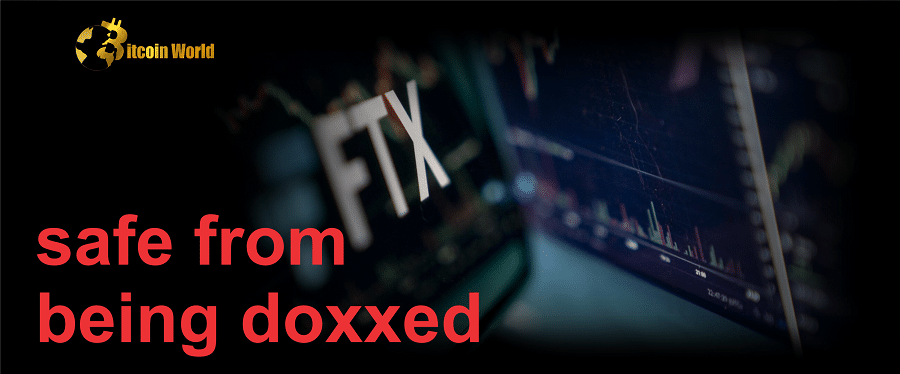The FTX saga continues to unfold, and the latest chapter involves a significant decision regarding the privacy of its users. If you’ve been following the FTX bankruptcy case, you’ll know it’s a complex web of legal proceedings and financial fallout. One of the most pressing questions for many has been: what happens to the personal information of FTX’s massive customer base? Well, a recent ruling has provided some clarity, at least for now.
Why the Secret? Understanding the Court’s Decision
In a nutshell, the names of potentially nine million FTX customers are set to remain confidential for at least the next three months. This decision, handed down by Judge John Dorsey in the Delaware bankruptcy court on January 11th, comes in response to a request from FTX’s legal team. But why the secrecy? What are the arguments for keeping these names under wraps?
The core argument revolves around protecting FTX’s creditors. Think about it – revealing the names of millions of individuals who had funds tied up in a collapsed exchange could unfortunately make them targets for nefarious activities. FTX’s lawyers highlighted this very concern in their January 8th filing, arguing that public disclosure could expose creditors to:
- Identity Theft: With names and potentially other associated information becoming public, individuals could be vulnerable to identity theft.
- Criminal Harm: In more extreme scenarios, individuals might become targets for scams or even physical harm.
Judge Dorsey echoed these concerns, stating his reluctance to publish sensitive material that could put creditors “at risk.” He emphasized that these are individuals who are not present in the proceedings to defend their privacy.
“We’re talking about individuals here who are not present – individuals who may be at risk if their name and information is disclosed.”
This stance aligns with the arguments presented by FTX’s legal team, who invoked the U.S. Bankruptcy Code, urging the court to use its discretion to protect those affected by the exchange’s collapse. Furthermore, a group of non-U.S. FTX customers filed a joinder on December 28th, stressing the potential for “irreparable injury” if their information were made public.
Isn’t Creditor Information Usually Public? The Exception, Not the Rule
You might be thinking, isn’t creditor information usually public in bankruptcy cases? And you’d be right. This is where the FTX case deviates from the norm. A notable example is the Celsius bankruptcy proceedings in October 2022, where creditor information was indeed revealed. So, why the difference in approach?
The court seems to be prioritizing the potential harm to individual creditors in the FTX case, considering the sheer number of people involved and the sensitive nature of the information. It highlights a balancing act between transparency in bankruptcy proceedings and the need to protect individuals from potential harm.
Who Else is Under the Microscope? The Case of FTX Stockholders
Interestingly, while customer names are being shielded, the Delaware bankruptcy court has taken a different approach with FTX stockholders. On January 9th, a document was released detailing the investors who are expected to face significant losses, along with the number of shares they held. This list included some high-profile names, such as:
- NFL legend and former FTX brand ambassador Tom Brady
- Supermodel and entrepreneur Gisele Bündchen (Brady’s ex-wife)
- Tech billionaire Peter Thiel
- “Shark Tank” investor Kevin O’Leary
This contrast underscores the court’s nuanced approach, seemingly differentiating between the potential risks to individual customers and the expectations of investors in a company.
Is There Any Good News? Progress on Recovering Assets
Amidst the legal complexities, there’s a glimmer of positive news. According to FTX attorney Andy Dietderich, as of January 11th, FTX had recovered $5 billion in cash and cryptocurrencies. This is a significant step towards potentially compensating creditors, although the road to recovery is likely to be long and complex.
Early bankruptcy filings from November indicated that over 1 million creditors were potentially involved, with a staggering $3 billion owed to the top 50 creditors alone. The recovery of assets is crucial for these individuals and institutions who have been impacted by the FTX collapse.
What Does This Mean for the Future? Key Takeaways
The decision to keep FTX customer names confidential for now highlights several key aspects of this ongoing saga:
- Prioritizing Creditor Protection: The court is prioritizing the safety and privacy of individual creditors in this initial phase.
- Balancing Transparency and Privacy: The case underscores the tension between the desire for transparency in bankruptcy proceedings and the need to protect sensitive personal information.
- Potential for Future Disclosure: The confidentiality is currently set for three months, suggesting this issue may be revisited in the future.
- Complex Legal Landscape: The FTX bankruptcy is a complex legal matter with nuances that differentiate it from other similar cases.
Looking Ahead: What Happens Next?
While the immediate future sees FTX customer names remaining confidential, the situation is fluid. As the bankruptcy proceedings continue, there will likely be further developments regarding the disclosure of information. Keep an eye on future court filings and legal updates for the latest news.
The FTX bankruptcy serves as a stark reminder of the risks associated with the cryptocurrency industry and the importance of robust regulatory frameworks. The decision to protect customer names, while a departure from standard practice, reflects a growing awareness of the potential vulnerabilities faced by individuals in such situations.
Disclaimer: The information provided is not trading advice, Bitcoinworld.co.in holds no liability for any investments made based on the information provided on this page. We strongly recommend independent research and/or consultation with a qualified professional before making any investment decisions.




